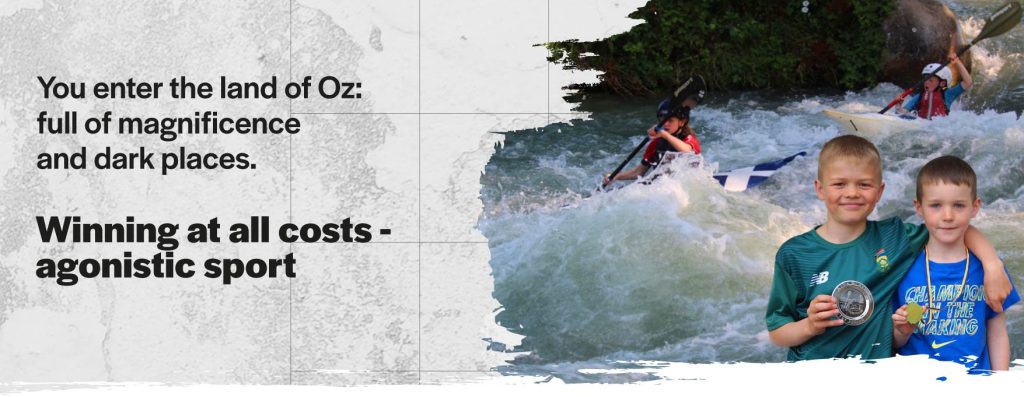Sure, team sports are great for fitness, skills, competitiveness and new experiences. But they also offer kids an awesome workshop for social skills.
To show why playing in a team with your peer greep is so valuable, first of all let’s check out the main social bonds which kids have.
Peers v adults
Relationships between adults and kids are asymmetrical. Parents and teachers still wield rewards and punishments. It’s hugely valuable for children to handle little quarrels with others who are the same age. Group members are more equal, and it can be harder to be heard for all without clear authority figures. Research shows that these little conflicts teach kids to manage opposing ideas, to explain themselves, to negotiate and ultimately to understand the immense value of compromise. Sulking only feels satisfying for a very short time…. *
Physicality helps
There’s a long list of life skills gained from team sports: Perseverance, accountability within the team, and self-assessment after a defeat. At club level you throw in the interaction with kids who would normally be outside your existing social network. That amplifies those skills I listed and adds more: loyalty, closeness, self-control.
Sport is one of the oldest leisure activities of humankind so it meets deep-felt needs! Cooperation, physical effort, focus and a common goal: elements borrowed from survival. Learning to structure your effort for a greater goal within a group starts with sports. *
Naturally there’s teamwork at school or within arts and music too. But there’s no real rivalry: Kids undertaking sports and constructive group activities tend to steal the extra hours from passive activities, such as screen-time, over academic time.*
Finally, leaving the safe haven of a well-established social set to train, play and compete with new groups of kids expands their horizons. The football tour, the rugby festival, the swimming gala or tennis open offer more than fitness and a sense of achievement. Participants are also taking steps to increase open-mindness and become more trusting.**
New word: Agonism!
Competitive sport and “regular” sport trigger very different behaviours. Both let the child have as much fun as possible, bond with new children and increase their confidence in new surroundings. Agonistic sport is about winning. Winning at all costs. To take this path is to enter the land of Oz: full of magnificence and dark places.
Some degree of competitiveness is in-built from the start, but our spirit of cooperation usually prevails.*** So where does explicit competitiveness originate? The answer is mostly from parents.*** Raising a kid to win – at chess or at football – is a process that slowly shifts all other priorities. In the early years of my sporting experience, I have witnessed parents being banned by the gym/stadium where I played for their disruptive behaviour, helping their kids to cheat, wilfully distracting opponents, or even insulting them. During adolescence parents’ influence wanes and peer pressure becomes overwhelming. Trust me on this: in an elite sports environment that pressure is like a hundred pistons hammering away. The coach gets harsher as well and the bar for praise is set very high. At that point it’s really easy to crack. Research shows us that some form of failure-based depression among elite athletes is as high as 68% over their careers. ****
The sport is not the enemy
It might look like I am against high level sport, but I am most certainly not! I’m describing risks to avoid, not the norm. I loved and still miss my years as a basketball pro, and although it scars you, the good memories stay with you forever. I can’t see a better formative experience for a growing kid. (hyperlink Olympics blog). However, to ensure a better outcome for sports and sportspeople, we must all remember a key thing: an athlete is not a superhero. It’s a normal person with hard-earned physical skills. Even if they’re able to throw a javelin a 100 metres or lift 200kg overhead, they are that same child wanting to please family and coaches, strong outside and fragile like anyone else inside.
References
*Redhead D., Cheng J., O’Gorman R. (2018) ‘Status competition and peer relationships in childhood.’ Encyclopaedia of evolutionary psychological science, Springer, Cham.
**Schwartz D., Ryjova Y., Kelleghan A. R., Fritz H. (2021) ‘The refugee crisis and peer relatioships during childhood and adolescence.’ Journal of applied developmental psychology, 74.
***Friedman H. L. (2013) Raising children in a competitive culture. 1st edition. Los Angeles: University of California Press.
****Hammond T., Gialloreto C., Kubas H., Davis H IV (2013) ‘The prevalence of failure-based depression among elite athletes.’ Clinical journal of sport medicine, 23(4), 273/277.
Further reading
Rubin K. H., Chen X., Coplan R., Buskirk A. A. (2005) ‘Peer relationships in childhood’. George Washington University publications.
Danioni, F., Barni D., Rosnati R. (2017) ‘Transmitting sport values: the importance of parental involvement in children’s sport activity.’ Europe’s Journal of psychology, 13(1), 75-92.
Felfe C., Lechner M., Steinmar A. (2016) ‘Sports and child development’. Open Access publication, PLOSone.





